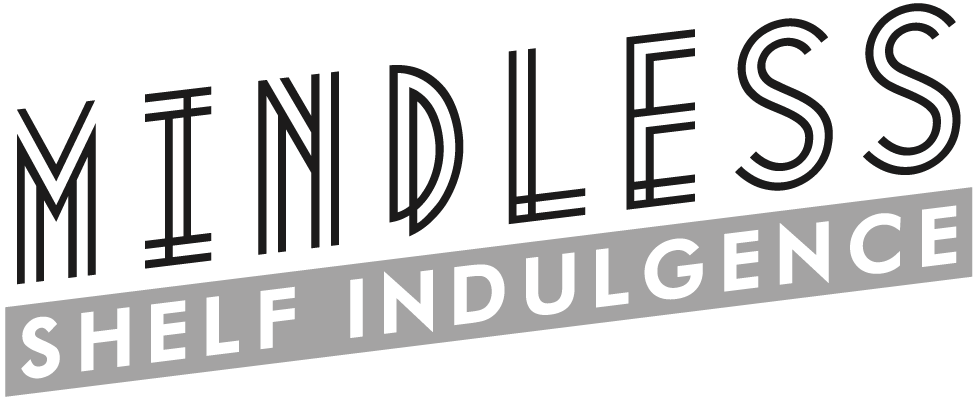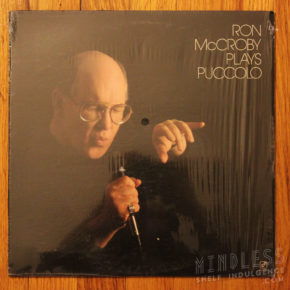When you’re 40 albums into thoughtfully sorting a collection of hundreds, it’s tempting to stop being meticulous and giving every album a few moments of your time. You start to wonder when you should just stop giving respect to these moments of art and just toss them into a donation bin somewhere, where they’ll probably end up in the trash but absolve you of your personal feelings of guilt.
But then you may start to see yourself in every artist, and in their failures and successes, their creative missteps and the hopes that something you’ve launched into the world will find a home in someone else’s heart. And then, you can’t let anything go unnoticed, and you listen to another ten.
Quarantainment I
Quarantainment II
Quarantainment III
Quarantainment IV
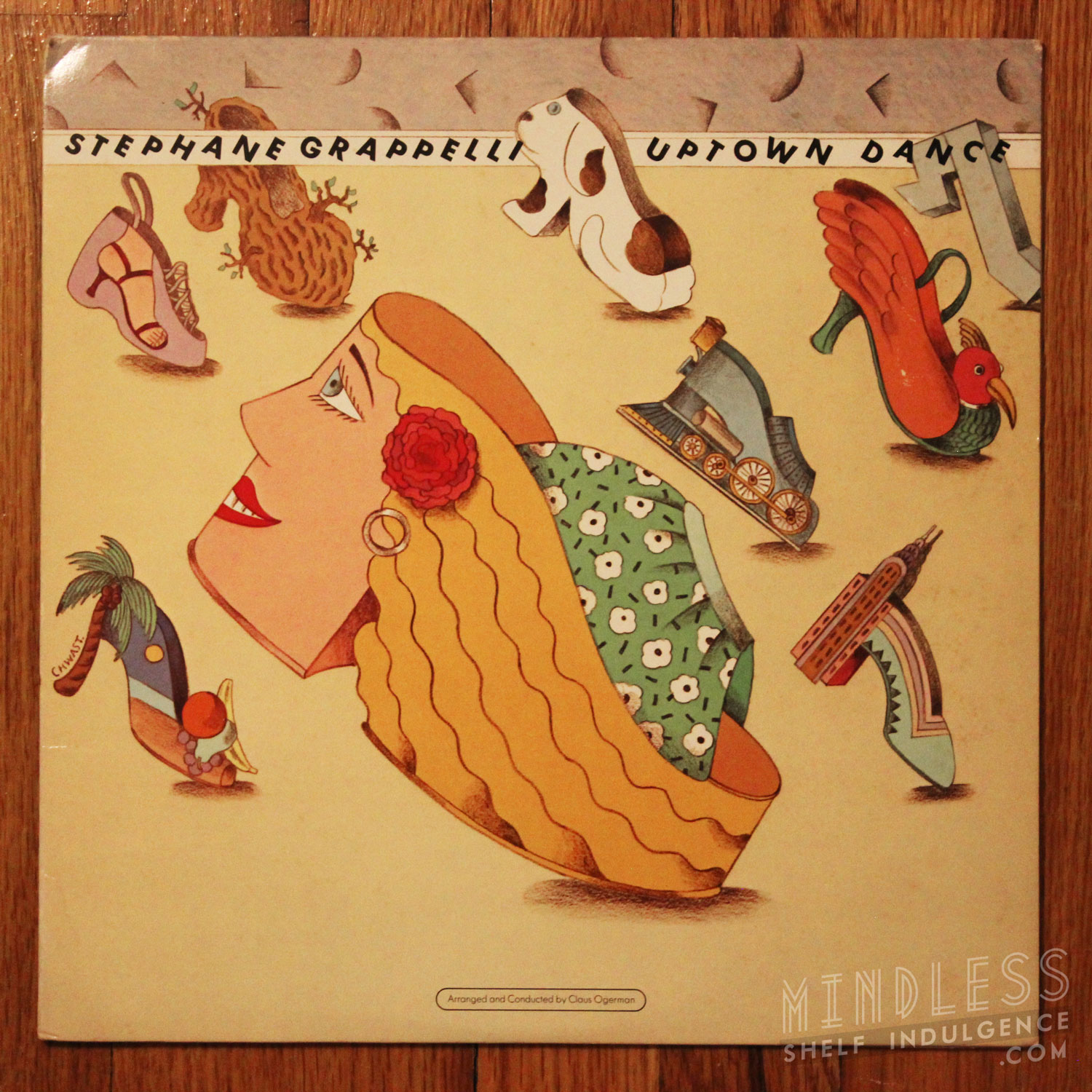
Stephane Grappelli
Uptown Dance
[1978]
Jazz bands are great, but jazz bands with unusual instruments are even better, like Tony Argo’s unexpected jazz accordion. I first found Grappelli on a dollar store CD which was half Django Reinhardt (who I was already a fan of thanks to Dave McKean’s short film The Week Before), and half Grappelli, though there was probably some serious overlap between the two, since they notably performed together. 1978’s Uptown Dance is nothing like his 1934 work with Quintette du Hot Club de France, and it’s pretty interesting to watch one violinist follow the evolution of jazz though a period of over 50 years. Now, he’s backed with an orchestra and occasional synths, but they allow him to take center stage. Because of the setting, this strays a bit close to smooth jazz, or adult contemporary, but Grappelli’s personality prevents the album from falling headfirst into that abyss. Even if it does have a few too many twinkling bar chimes.
Grappelli is called the “grandfather of jazz violin”, and even though his recordings are important, this has never officially been released in a digital format, though you can stream it on YouTube. It’s slow and contemplative, and it has a surrealist cover by Seymour Chwast, whose aesthetic captures an era. If there’s a dance in here, it’s a slow one, but it’s nice.
Keep or toss? Keep. It’s a cool package, altogether.
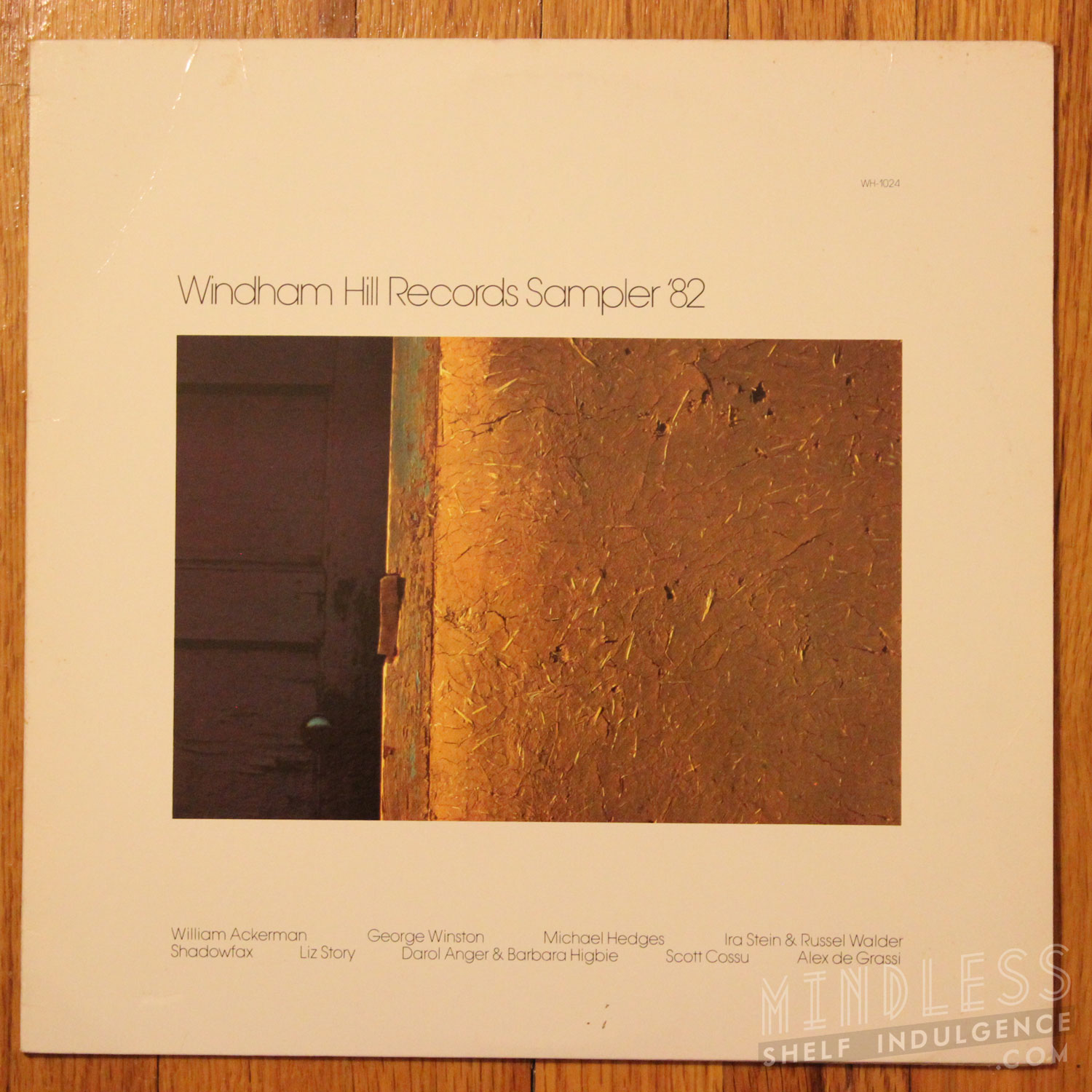
Various Artists
Windham Hill Records Sampler ’82
[1982]
Windham Hill is a record label started in 1976 by William Ackerman, originally for acoustic and folk music. The label evolved pretty quickly and was sold to BMG by 1996, and by then, the genres they published ranged far and wide. Sampler ’82 focuses on the acoustic, folky range; very contemplative guitar, violin, and piano pieces. Some have called it New Age, which is very different from New Wave. This is music you’d hear when you walk into a store that sells crystals and incense, but not like the hippie, psychedelic kind. These are middle-aged witches who have settled down and are doing reiki in the back room behind a thin curtain which was probably a fancy bedsheet in another life. In a different sense, it’s almost like it’s music about musical composition; pianist George Winston didn’t sit down and plan on writing something that would do well with books on finding your inner star sign, but somehow it all meshes together.
It’s non-invasive, gentle stuff. It’s more creative than that dreaded Adult Contemporary, mostly because it doesn’t ever entertain any lyrics that are borderline pornographic but somehow acceptable because they’re being crooned over a soothing melody. You can’t get through a Michael’s craft store without hearing 3 songs about full-on penetration. This is not that.
Keep or toss? I’ll pass this one along. Samplers are for people who can’t commit to a whole plate full of jalapeno poppers. Those people are weak.

DDC Shorthand Records Dictation Disc No. 2
[1953]
So there’s some pretty weird stuff in the pile; records about birdsongs and the women who love them, educational records, audio screeds about teen celibacy, and then there’s this. It is not something you listen to for fun, obviously, but instead to learn shorthand, a series of crazy squiggles meant to convey information to a page at rapid speeds. Today, the form is somewhat outdated by speech-to-text programs, but it’s an interesting relic of how humans tried to bridge the gap between different methods of conveying and processing information.
This is the soundtrack to Business Letters : The Movie. A slow-talking gentleman dictates a variety of apologies, threats, and requests to customers and fellow business-types alike, for a variety of fictional brands and products, ranging from pens to desks. It’s from an era when writing letters was the only affordable method of communication, and making phone calls cost more money the further away you wanted to reach. Slow, methodical, sometimes unreliable, somehow the world managed to advance at a snail’s pace until the advent of unlimited calling and emails. In this way, words also had to be chosen carefully and economically, which is not really something that’s done quite as much today.
What does this have to do with shorthand? Well, important business people wouldn’t have the time to write their own letters. Secretaries would scratch out a series of coded phonetic sounds and go and type up a real letter later. It’s circuitous and strange, and as someone who grew up before email was really available to everyone, and as someone who had two dozen penpals as a young teenager, writing letters was not necessarily the good ol’ days.
Keep or toss? Maybe some misbegotten hipster is looking to complete their collection of dictation discs. That person isn’t me.
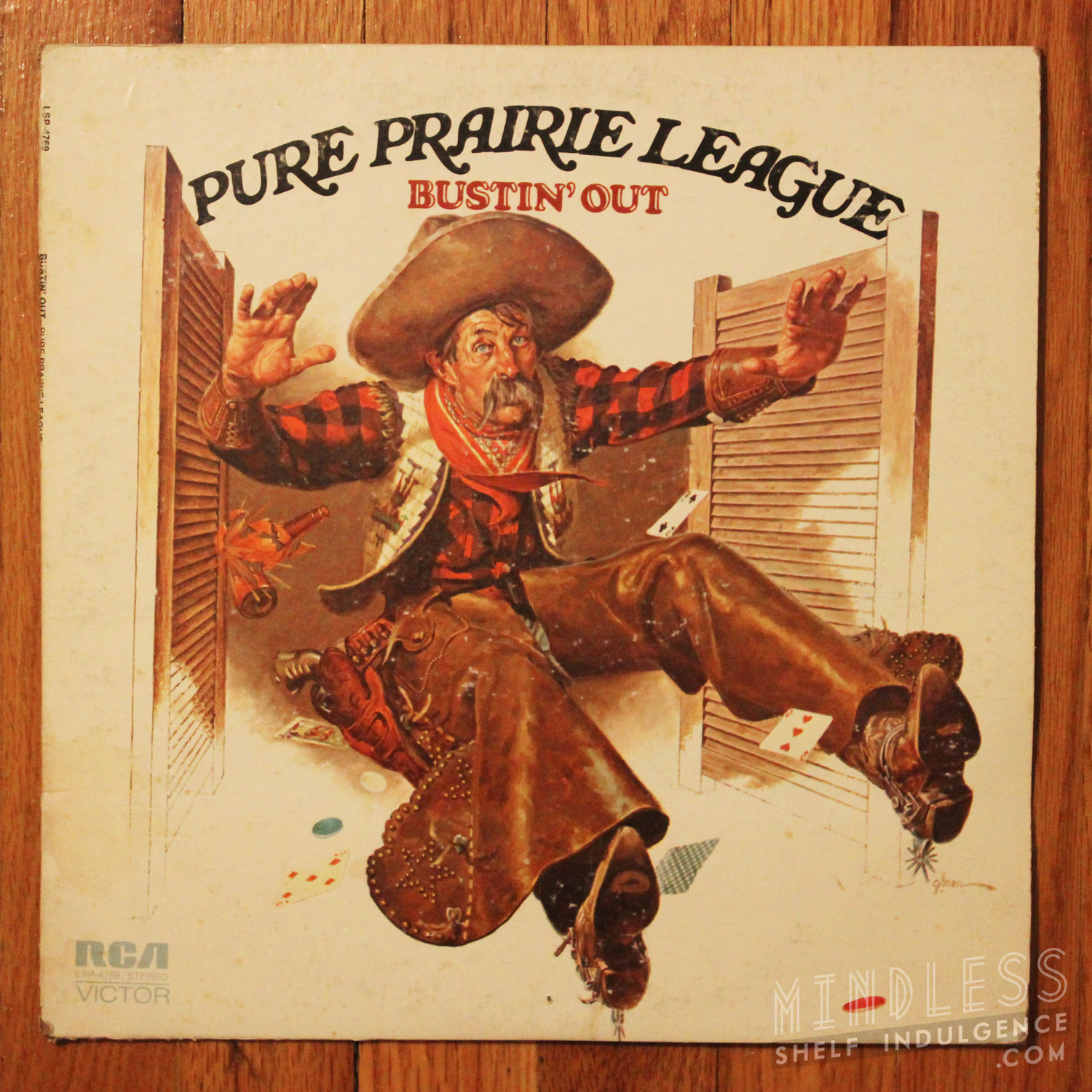
Pure Prairie League
Bustin’ Out
[1972]
You know at least one Pure Prairie League song, and it’s “Amie“. If you’ve heard that, you know the vibe of this entire album. If you enjoy soft country rock, and probably mowing your lawn with unnecessary precision, you probably already have this album. It’s not obscure by any stretch, but it’s an instance where you dig into a band which has one pretty okay hit song, and you don’t find anything else that really stands out. Sometimes the hit is really the hit and there are no deep cuts to explore. The bedrock is right at the surface.
File under : Band Names That Come From Movies. See also : Nerf Herder, Mott the Hoople, Save Ferris, Veruca Salt, Mogwai, Duran Duran and The Dismemberment Plan, among others.
Keep or toss? The record has a significant warp, and also, it’s common and doesn’t fit well into my collection. I’m using the cover to protect another rare Elvis 45 I’ve sold on eBay, and the warped album isn’t useful to anyone.
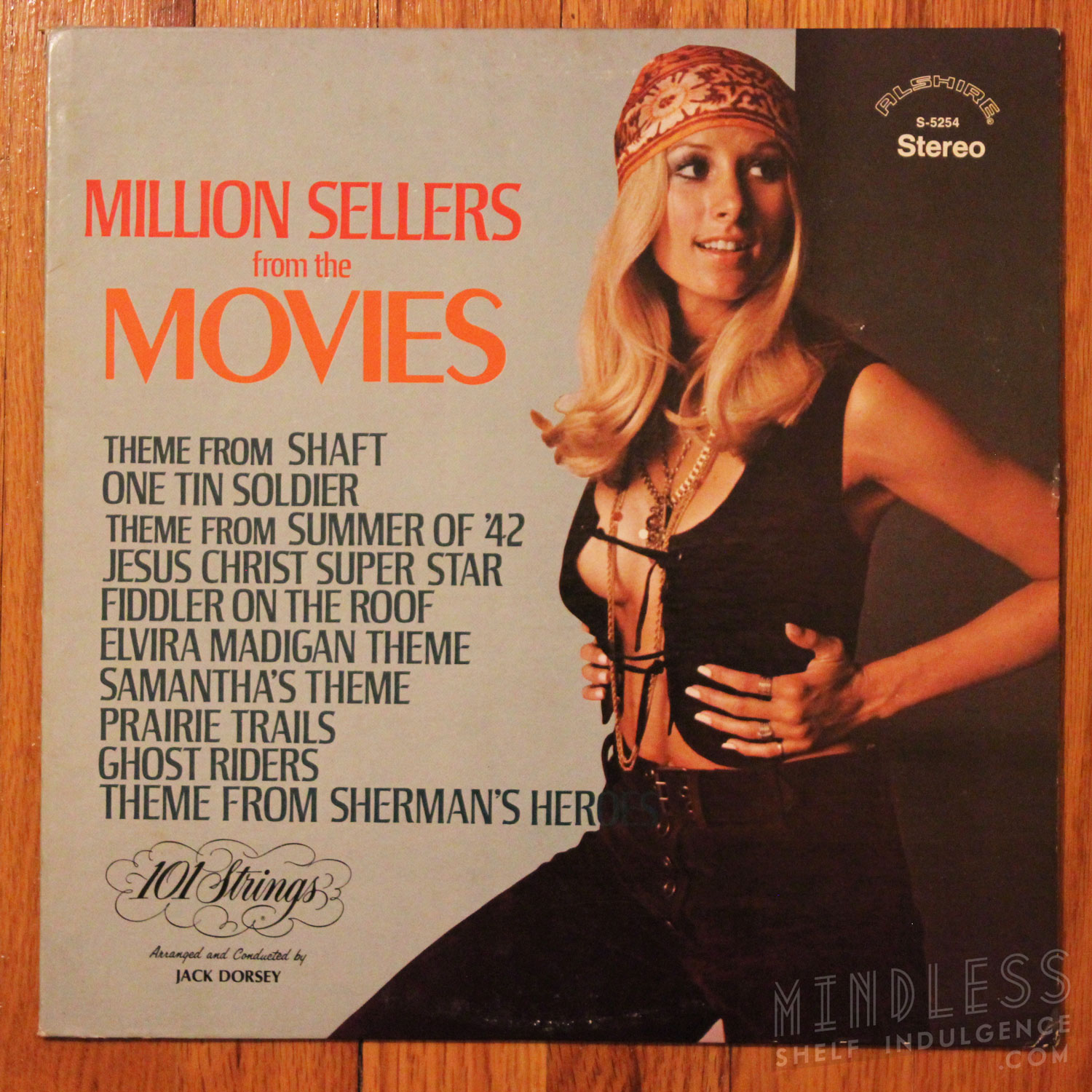
Jack Dorsey & 100 Strings
Million Sellers from the Movies
[1972]
Look, it’s no mystery why this record sold any copies at all. It’s an irrelevant photo of an attractive woman on an album that is otherwise entirely filler. Movie theme compilations and reinterpretations are the worst of the worst when it comes to unsellable bargain bin filler, so you have to do something to sell the musical equivalent of shovelware. The most important elements here are obvious; not even the song titles can compete with the model, and are partially obliterated by her pants.
This was probably pulled out of a free pile somewhere, and there’s really nothing unique to mention here.
Keep or toss? This is going back into a free pile.
Ron McCroby
Plays Puccalo / The Other Whistler
[1983 / 1984]
Ron McCroby is an interesting character in the annals of music. He’s an incredibly adept whistler; the things he does with a pucker defy what one might think of as traditional whistling, and he’s good enough to have a few albums on a legitimate jazz label. But dig a little into his legacy, and you’ll find that he’s also an accomplished multi-instrumentalist (he also plays clarinet on Plays Puccalo), and even wrote jingles for Kenner, apparently scoring and voicing some early Care Bears commercials, as well as others that haven’t been carefully documented. He made a few TV appearances as a jazz whistler, and appeared in a student film about the same.
He had five daughters and one son, and died in 2002. Most of this information comes from comments left under the three or four YouTube videos about McCroby; even in the exhaustive voice actors wiki, there’s no mention of him as one of many different iterations of Tenderheart Bear. Was he this version? It’s all a pretty grey area, but if the Geedis mystery taught us anything, it’s that these strange little iconic pieces of our childhood all came from somewhere, and those creators are important.
The albums are solid work. McCroby is so versatile and natural that you’re not even always aware that someone is whistling, but you know it sounds cool. It’s not a gimmick, but it’s certainly something that helped McCroby get noticed. With any luck, I’ll dig deep enough and be able to figure out exactly which childhood commercial earworms he created. I’m invested now.
Keep or toss? These have been a treasure for a while, and I’ve been waiting for just the right time to listen to them. Preparing to move is a good a time as any.

Marv Kurtz
Sing Along in Yiddish
[Unknown]
Accompanied by a collection of printed phonetic lyric sheets, this is a far less serious collection that one might expect. Sure, it starts out ostensibly serious, but once the goofball voices kick in, you know that they’re having fun. And klezmer music is fun, as anyone who’s ever heard ‘Hava Nagila’ can attest. At the album reaches its crescendo near the end, it becomes faster and faster, more and more unexpected and intentionally playful. But so much more than that, it’s a record of something culturally important.
Keep or toss? Make a copy, because I’m obsessed with archiving everything, and pass this to someone who can appreciate it. This is the kind of record that people might skip if they saw it in a pile at a Goodwill, and if enough of them are ignored, they may just disappear.
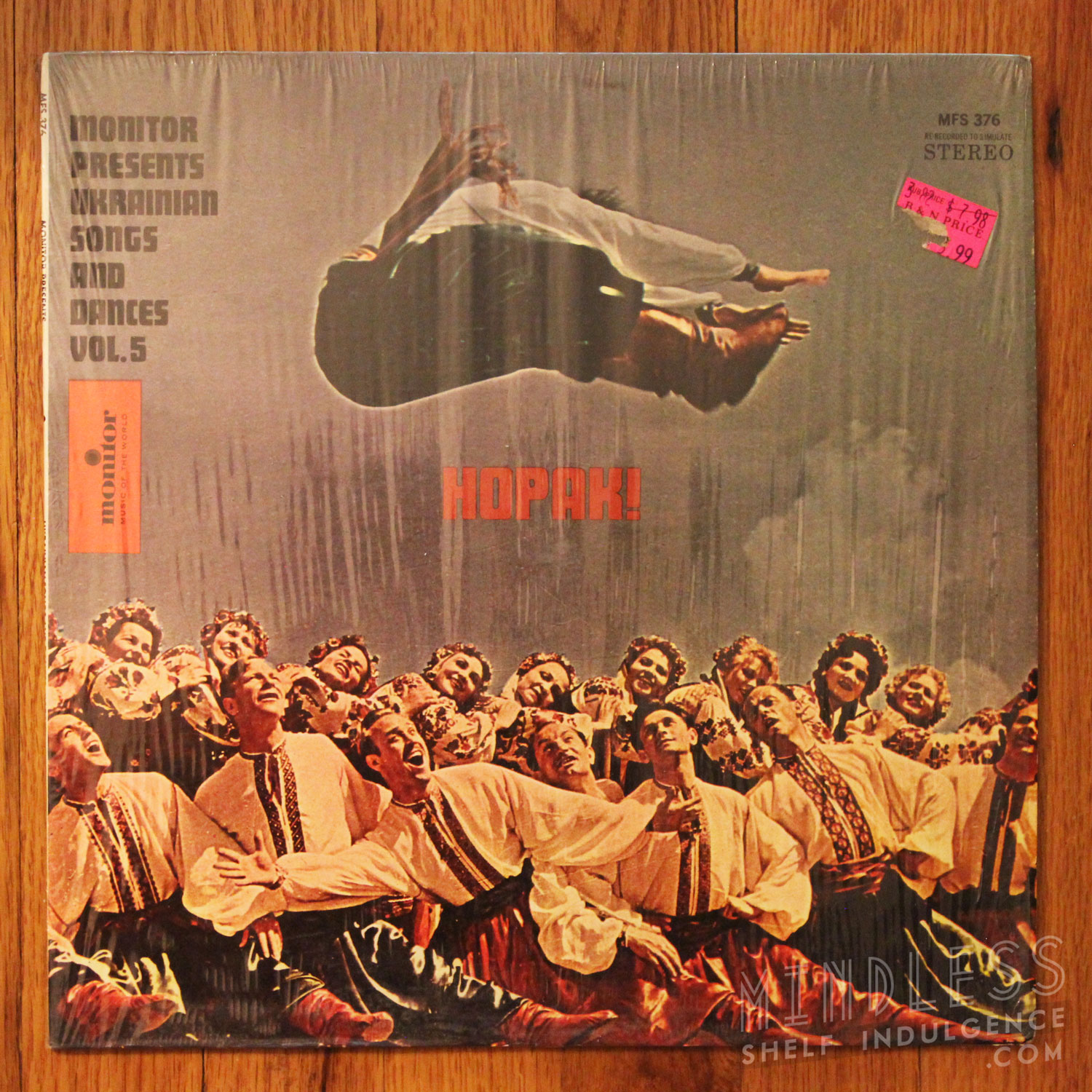
Various Artists
Hopak! Monitor Presents Ukrainian Songs and Dances Vol. 5
[Unknown]
Exactly what it sounds like : something that would probably be used in a bizarre action scene in a Wes Anderson movie. Frantic, confusing, occasionally operatic, and probably really meaningful for people from the old country. There are at least five volumes of this stuff. It’s culturally relevant, and it’s important to preserve folk songs, but it’s probably not enjoyable to the average listener.
I don’t know how I ended up with this, aside from it was probably free, and I’m infinitely curious about everything.
Keep or toss? Sell it. I hope it goes to some nice Ukrainian grandma somewhere.

Fotomaker
s/t
[1978]
Often considered one of the worst record covers of all time, Fotomaker promised that their two follow-up albums to this would narratively explain this horrible first cover. What an aging jester and a cubist cigarette girl do to justify this isn’t really clear, but regardless, this one is pretty disturbing. It’s a little difficult to look past it to the kinda generic rock inside.
Fotomaker was a Long Island band that released three albums in very rapid succession and disappeared. The Wikipedia article reads like a footnote in the annals of rock, and sounds like an accusation of a band which was only focused on creating short, radio-friendly songs in search of fame. Some of the founding members didn’t really need it; they had already been in The Rascals and one was inducted into the Rock & Roll Hall of Fame in 1997. A couple other members haven’t warranted Wiki entries. It’s almost described like the 70s equivalent of a manufactured band, though I’m not sure what truth there is to that.
It’s power pop at its most basic; good, but maybe not entirely different or memorable in the scheme of things that were happening concurrently. Jethro Tull released Heavy Horses, The Talking Heads released More Songs About Buildings and Food, and Devo released Are We Not Men?, so the world of inventive and interesting music in all genres was exploding. This was riding a wave, but not innovating on it.
Keep or sell? This is a hard choice. It’s not an amazing album, but having one of the notoriously worst covers of all time floating around has its own terrible appeal.
 C. David is a writer and artist living in the Hudson Valley, NY. He loves pinball, Wazmo Nariz, Rem Lezar, MODOK, pogs, Ultra Monsters, 80s horror, and is secretly very enthusiastic about everything else not listed here.
C. David is a writer and artist living in the Hudson Valley, NY. He loves pinball, Wazmo Nariz, Rem Lezar, MODOK, pogs, Ultra Monsters, 80s horror, and is secretly very enthusiastic about everything else not listed here.